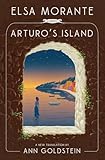It could be this Love Actually earworm that afflicts me this time of year, but I’m feeling love in my fingers, my toes and my year-in-reading list. And since love is supposedly a universal language, the following highlights are eros-themed works in translation.
When we first see the titular governesses in Anne Serre’s The Governesses (translated from the French by Mark Hutchinson), they have unbuttoned their blouses to combat the heat: “Even in a state of semi-undress, they’re a model of discretion, as smooth-skinned as infants fresh from the tub.” Set on the country estate of a well-heeled family, the novel generates its energy from this sense of decorous abandonment. The three women are less traditional caretakers than “mistresses of games and pleasures,” pleasures that include the occasional bout of murderous Bacchic frenzy: “This one will be tackled head-on, licked, bitten and devoured in a ladylike manner,” we read of one stranger lured onto the estate. (The governesses are great with the children, though.) The novella, Apollonian in its composition, pays homage to the Dionysian wellspring of life.
Over in Italy, Paolo Volponi’s The Javelin Thrower (translation by Richard Dixon) begins with a traumatic scene: a young child sees his mommy kissing not Santa Claus but a fascist officer. The officer is never seen without his gleaming silver dagger dangling from his belt; he even brings it to his trysts, highlighting the combination of virility and violence extolled by Il Duce. The boy soon reaches for a phallic object of his own, taking up the javelin, where under the tutelage of the officer he excels. Nonetheless, his beautiful mother’s adulterous liaison predictably haunts the child, and as we follow him through his adolescence and early adulthood, his sexual education, and view of women, is colored by the revulsion, shame and fascination of those spied upon encounters.
Whereas The Javelin Thrower is a slow burn of a novel, Elsa Morante’s Arturo’s Island, newly translated by Ann Goldstein, bursts with fervor. Arturo is a creature of excess—excessive in his self-reliance, fantasy-life, intensity of emotions and bravado. Left largely to look after himself on a small island off the coast of Naples while his father roams, he alternately desires and disdains his new stepmother, only a few years older than he is. His father seems more interested in the fate of a male convict held on the island’s penitentiary. Both stepmother and prisoner are rivals for his father’s affection and their mere existence gnaws at the ardent Arturo, prone as he is to “opposing and intertwined jealousies, the many-sided passions, that were to mark [his] destiny.”
Next on our Italian tour is Vitaliano Brancati’s The Beautiful Antonio (trans. Patrick Creagh), whose Sicilian, Adonis-like protagonist inspires outsized lusts his diminished libido can’t satisfy: “There’s a dead man in the midst of your life,” Antonio explains of his impotence, “a corpse so placed that whatever move you make you’re bound to brush up against it, against its cold, fetid skin.” His innocent wife eventually discovers that there is more to marriage than “chaste and fraternal embraces,” leading to an annulment and anguish that seems to be felt more keenly by Antonio’s father than himself. “…at his age he ought to be lifting rocks without using his hands…He died, my son, he died. I had a son, but he died.”
Like The Javelin Thrower, The Beautiful Antonio is set in Fascist Italy, and behind the comic depictions of masculinity lies a darker statement about the allure of potency. When Antonio’s elderly uncle, who returns to a bombed-out Catania from a concentration camp to find his nephew still stewing in self-pity, he loses it:
For anyone in any other country it would have been a piddling little mishap. But for us? Oh, we have to make a Greek tragedy of it! Because all we can think of is the one little thing, and that’s it! In the meanwhile along comes a despotic gangster. One kick in the pants from him and we go flying into this war…
If these Italian novels—especially Volponi’s and Morante’s—have an overwrought intensity, Christina Hesselholdt’s deploys a cooler, more ironic approach to human passion. “We are still miserable, and again we are rambling in the realm of a powerful love,” says one of the six narrators of Christina Hesselholdt’s mosaical Companions while visiting Haworth Moor (Bronte country) with her husband. A few pages later, we find ourselves in less romantic climes, a German strip club, and in the hands of another, equally well-read narrator: “Ohhh, the human, oh-so Zizekian need to make sense of thing where none exists,” she muses while analyzing her surroundings. In this literate novel—inspired by the multi-perspective structures of Virginia Woolf’s The Waves and Lawrence Durrell’s The Alexandria Quartet—chronicles a group of Danish friends approaching middle-age. Translated by Paul Russell Garrett, Companions is a fascinating story about friends, lovers, and the pleasures and perils of intimacy.
Happy holidays, boun Natale, joyeux Noel, glædelig jul!
More from A Year in Reading 2018
Don’t miss:A Year in Reading 2017, 2016, 2015, 2014, 2013, 2012, 2011, 2010, 2009, 2008, 2007, 2006, 2005














